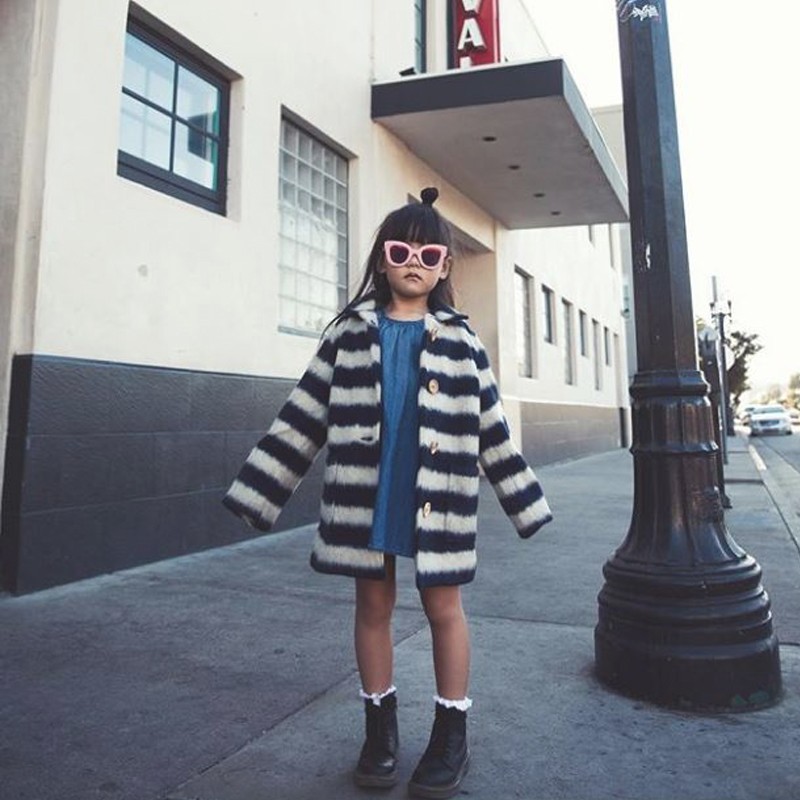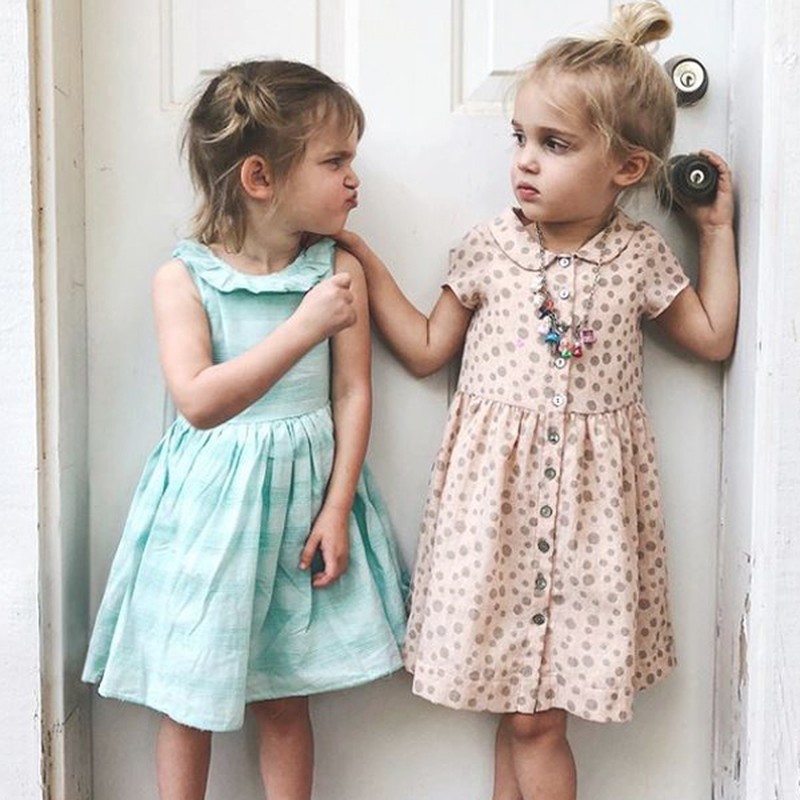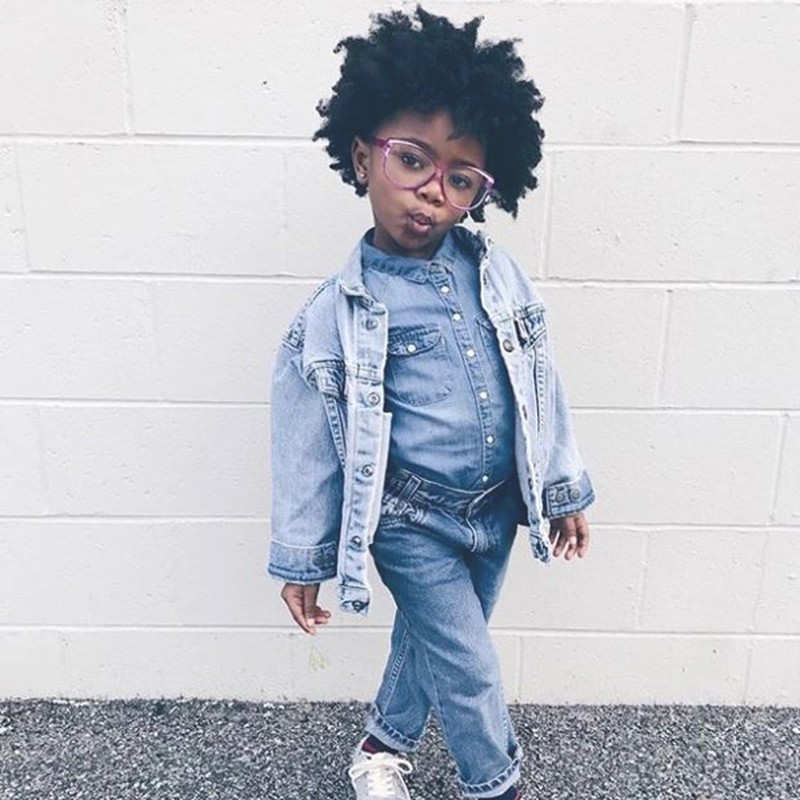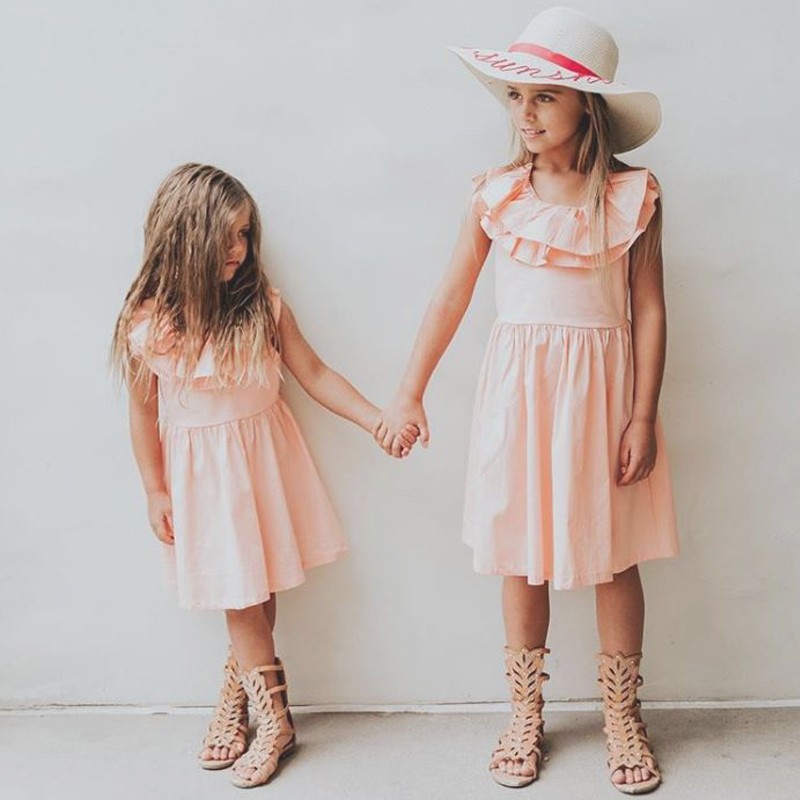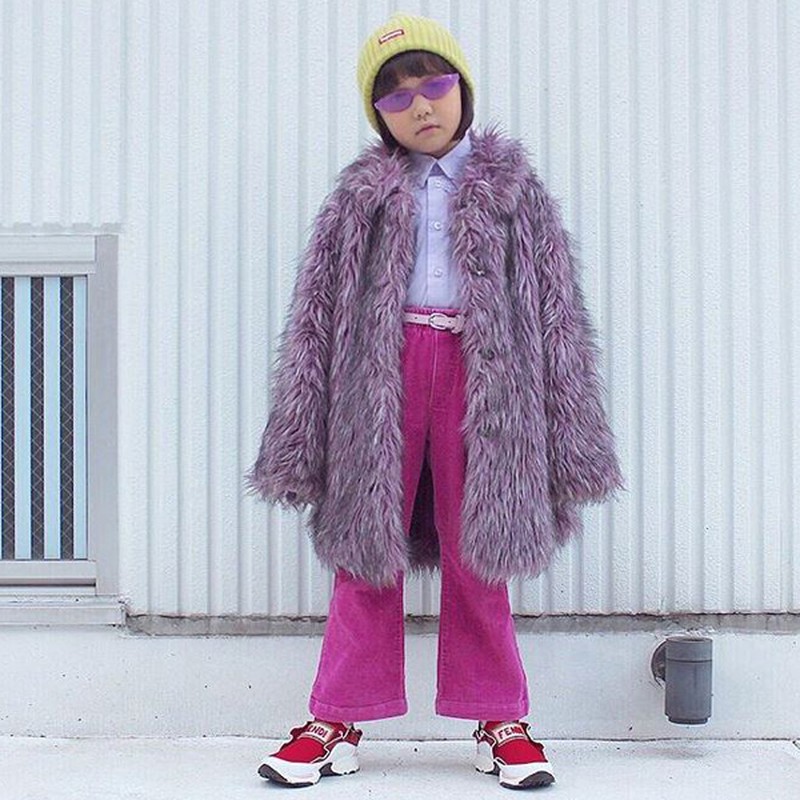The Strange World Of Child Instagram Stars
Instagram may require users to be at least 13 before opening account, but there’s no rules around posting on a child’s behalf – and many a momager (and dadager) is cashing in. Yes, they may not even know how to take a photo yet, but some of these kids have far more followers than you – and better wardrobes to boot.
The ‘sharenting’ trend is popular among celebrities – David and Victoria Beckham frequently post proud-parent snaps of six-year-old Harper, while Serena Williams created an entire account dedicated to her eight-month-old baby Alexis Olympia – but children certainly don’t need famous families to become social media stars. Take three-year-old twins Mila and Emma Stauffer – the main faces of the Stauffer family Instagram account, run by their mother Kate and boasting a whopping 3.9m followers.
The twins have grown up online, and also have substantial followings on Facebook and YouTube. So large, in fact, that Kate has been able to quit her job to run their social feeds full-time. Influencer marketing agencies have estimated she makes between $50-£100k per sponsored Instagram post (around £37-75k).
Mia, who features in posts more often as Emma is shy, has even reached a level of fame where people ask her for photos in public. She has fans all over the world – people in India, China, Brazil, and elsewhere flood her photos with comments like “I love Mila”, and men have even stopped Mila on the street and kissed her cheek without asking.
So is Kate worried about the implications of posting her children’s lives online? In an interview with BuzzFeed News, she explained that, to her, it’s no different to being the parent of a child actor. She even organises meet-and-greets (with security present, she stresses), where fans can pay to meet and take a selfie with Mila. And as for what Kate says to people who accuse her of profiting from her kids? “It’s for them,” she told BuzzFeed, revealing she puts the majority of money into a trust fund.
While Kate may have to ‘incentivise’ photoshoots with her twins – admitting to bribing them with ice-cream – other mini-influencers are far more involved with their online presence. Seven-year-old Coco from Tokyo, better known as Coco PinkPrincess, has over 550k Instagram followers who can’t get enough of her directional, high-fashion outfits – and according to her mother, Coco is very much in charge of her own image.
In an interview with Elle magazine, Coco’s mother Misato revealed the young Insta-star chooses which photos she wants to be posted, and even adjusts the colour balance to her liking. For her shoot with Elle, she picked out her outfits – right down to the accessories – alongside her father. “Some people think [she’s] too young,” Misato said of Coco’s online exposure. “But we don’t force her or anything. It is a way of educating her to face the world.”
Misato believes growing up in the eclectic Harajuku district – famed for its street style – influenced her daughter’s love of fashion. She fondly recalls a vintage floral dress that excited Coco when she was still in nappies. Today, she’s more of a Gucci girl: “Her favourite right now is the backless Princetown slippers.”
Lucrative business model or not, when it comes to posting photos of children online, Britain is a nation divided. In a 2017 survey, more than half of UK parents (56%) said they never share photos of their kids on social media, with the majority citing privacy is the main reason. The other 42%, who do share photos of their little ones, said they did so at least once a month.
But experts believe many parents are underestimating just how much information they’re revealing. In the United States, 92% of two-year-olds already have an online presence; of these children, approximately one-third appear on social media as mere newborns. On Instagram, 63% of parents reference their child’s first name in at least one photo in their stream, 27% of parents reference their child’s date of birth, and 19% share both pieces of information. Many babies have an online presence before even being born, as sharing sonogram pictures is increasingly common amongst parents-to-be.
Dr Kirsty Goodwin, researcher and author of Raising Your Child in a Digital World, has raised concerns about exposing too much of children’s lives on social media. “Sharing our children’s images and information via social media stays with our kids into adulthood,” she said. “Many refer to this as their ‘digital footprint’, but I prefer to use the term ‘digital DNA’. Every photo or video has digital DNA.”
Of course, there are other, more immediate worries: the possibility of identity theft; sharing personal information about children that should remain private, such as their health issues; and the digital harvesting of kids’ images on predator sites – it’s been suggested that 50% of images shared on paedophile sites have been taken from parents’ social media accounts.
Then, there’s the disturbing new Instagram game, known as ‘baby role-play’. This online craze sees ‘players’ steal photos of children, then repost them pretending to be parents – making up stories about a fake family life. While most captions mention wholesome family activities, some are “horrifying”, involving nightmare tales of fake abductions.
It’s most definitely clear: once a photo is online, you lose full control of it. But there’s another issue too – what are parents teaching kids when they’re constantly snapping and sharing photos? As Goodwin asks, “Are we teaching them that they always need to be on show and performing for us? Are we teaching them that we need to digitally archive every moment of our lives? Are we teaching them that their sense of importance and identity is determined by the number of comments, likes and shares on social media?”
She stresses it’s vital for children to learn that digital thumbs-ups aren’t placeholders for their self-esteem; that it’s unhealthy to hook your identity and self-worth on external validation in the form of likes and comments; that you don’t need to capture and share a moment in order to enjoy it.
To post or not to post? US site City Moms Blog has shared some helpful tips for keeping for family safe on the internet:
Be selective about what photos you post: That picture of your toddler in the buff may be adorable, but if it’s not something you’d be OK showing a stranger, it’s best to keep it off the internet.
Keep your social profiles private: Facebook, Instagram – anywhere you post photos or personal information. Also check your settings to see what’s publicly visible on your profile.
Only ‘friend’ and follow people you actually know: People on the internet don’t always tell the truth. Even if someone seems harmless, you have no clue who they actually are.
Consider using private photo-sharing apps: Or private Facebook groups, or Instagram direct messages. These allow you to safely share photos with a handpicked group.
Never disclose your location: Check your phone/tablet/computer settings and be sure that location is turned OFF for apps like Facebook and Instagram.
Watermark your photos: This discourages people from stealing them in the first place, but also helps someone to alert you if they do happen to be stolen.
Inspiration Credits: Instagram.com/Miasaidno, Instagram.com/KcStauffer, Instagram.com/PrinceAndTheBaker, Instagram.com/ZooeyInTheCity, Instagram.com/LivAndWillow, Instagram.com/MissLendel
DISCLAIMER: We endeavour to always credit the correct original source of every image we use. If you think a credit may be incorrect, please contact us at info@sheerluxe.com.

